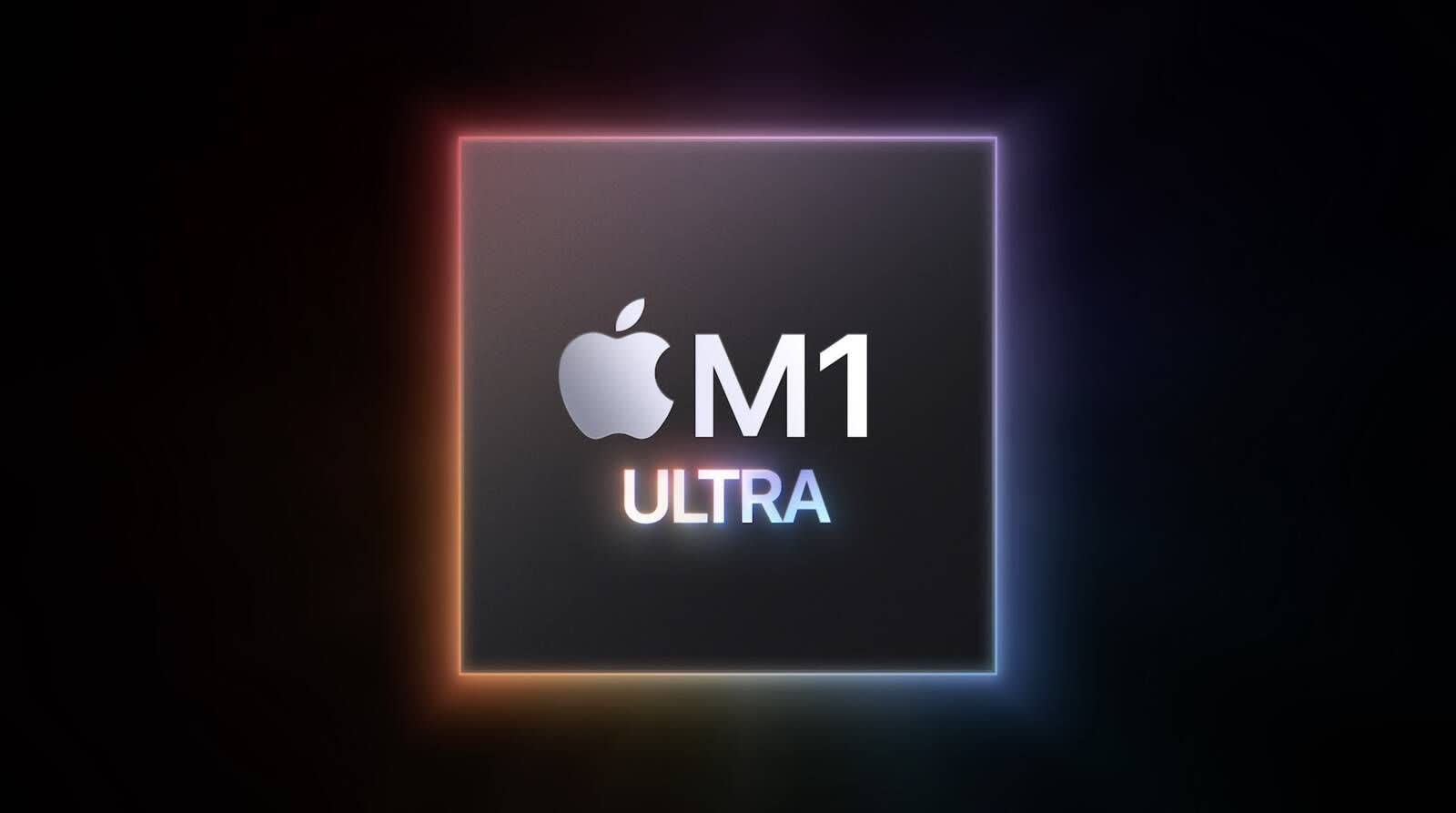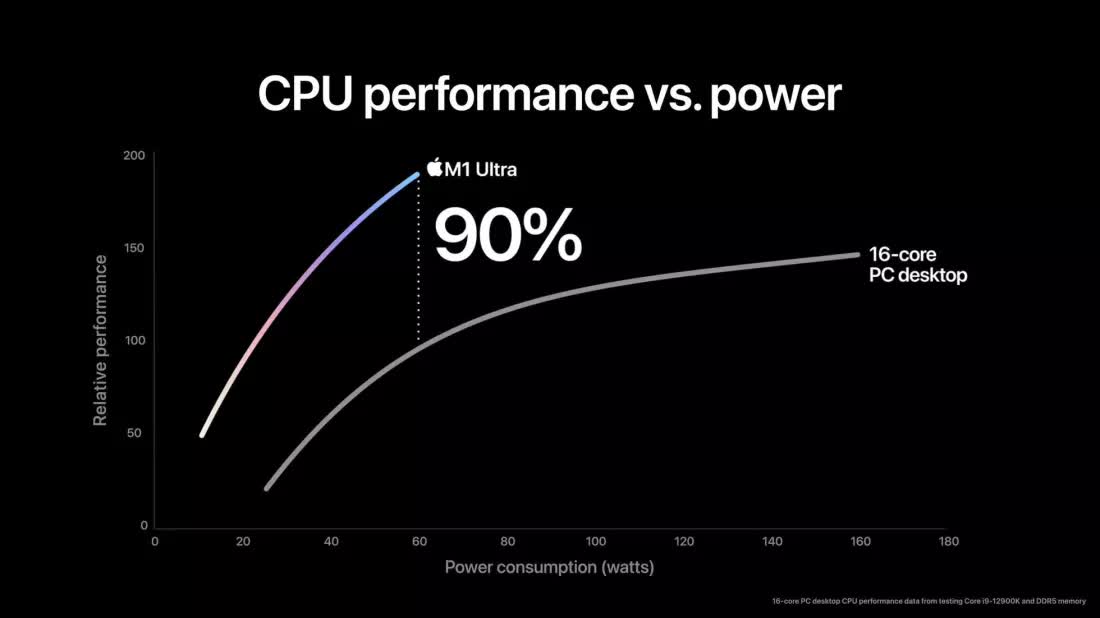What just happened? Apple revealed the monstrous M1 Ultra yesterday, an SoC that buyers of its new Mac Studio can opt for---if they have the money. Cupertino made it clear that the chip made the new machine Apple's most powerful Mac to date, and now we have benchmarks to prove it.
Benchleaks spotted the Geekbench 5 benchmark for the 20-core M1 Ultra, which is essentially two M1 Max SoCs linked together through Apple's new UltraFusion technology. The results show it reaching a multi-threaded score of 24,055 points and a single-threaded score of 1,793.
Apple M1 Ultrahttps://t.co/JQZBk7lDa1
--- Benchleaks (@BenchLeaks) March 8, 2022
Comparing the M1 Ultra to some of the other top chips illustrates just how powerful Apple's new SoC really is. The 28-core Intel Xeon W found in the top-spec Mac Pro is 56% slower in single-core performance (1,152) and 21% slower in multi-core (19,951).
The M1 Ultra also beats the Core i9-12900K's multi-threaded score (17,204) by 40%, though Intel's chip is the winner when it comes to single-threaded performance (1,997). Even the mighty Threadripper 3990X with its 64 cores can only manage a 4.5% faster multi-threaded score (25,133), and the M1 Ultra is ahead of AMD's CPU when it comes to single-core (1,213).
These are impressive figures, but it's always worth remembering that synthetic benchmarks don't always reflect real-world performance, so we'll have to wait until the M1 Ultra arrives in the Mac Studio on March 18 to find out more. If you want the top-spec model, be prepared to pay over $10,000.
Apple says the Ultra, manufactured on TSMC's 5 nm manufacturing process, is the last chip in the M1 family. It features 14 billion transistors, more than three times the number found in an Nvidia GeForce RTX 3090 GPU and an Intel Core i9-12900K combined. It also packs 16 high-performance cores and four efficiency cores, a 64-core GPU, 800GB/s of memory bandwidth, and a 32-core Neural Engine in a package that's around eight times the size of the M1.
On top of all that power, Apple says the M1 Ultra has a power consumption of just 60 watts, making it hugely efficient compared to its powerful chip rivals.
h/t: Tom's Hardware

